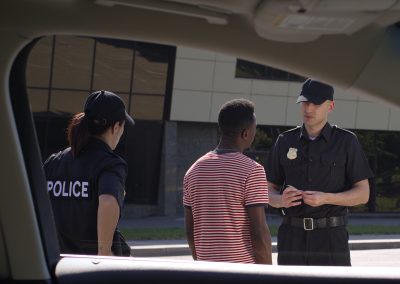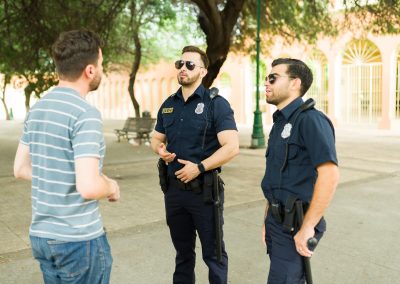“Our sergeants literally sit in their offices, stare at their computers, and track where we are at by our GPS! They’re pathetic.”
This is almost exactly what a police officer told me at a recent seminar, and it was corroborated by several others with him. I won’t say where because they were very concerned about what the ramifications might be if word got out they had criticized their “pathetic” supervisors.
Sure, cops complain about bosses. Always have and probably always will. But this is something else. I’ve been hearing a lot lately about what I call the “GPS Generation” of supervisors. This is a trend.
And yeah, it is pathetic.
Bosses vs. Leaders
I’ve brought up my boss many times in columns over the years. Dane Cuny was more than a superior, he was a mentor. He’s the first person who told me that your craft deserves study as he quizzed me on laws, policies, and even the geography of our town. Dane would talk to me about officers who made fatal career mistakes and how easy it was to fall into lazy habits. In short, he made me do two things: Look at the profession from a different paradigm than most and take responsibility for my career.
When I gained rank, first to sergeant and then to lieutenant, his advice only intensified as he told me I needed to first understand leadership in order to effectively practice it. So I began reading biographies of great and proven leaders, management books, and case studies on successful organization.
Dane and I eventually earned our master’s degrees together in law enforcement management.
He also alerted me to the fact that there were a lot of people who gave advice. I realized that the difference between most of the advice givers and Dane was that my boss practiced what he preached.
I was a lieutenant when we first had GPS installed in our fleet’s squad cars. Dane was the Deputy Chief of Operations. During a command meeting he asked his five lieutenants a simple question: “Why will your officers think we had the GPS systems installed in the cars?”
Our collective answer: “To keep track of them.”
“Exactly! So let me tell you: If I find out any of you, or any of your sergeants, are sitting at their desks and tracking the cops,” said Dane, “I’ll kick your ass myself.”
He went on to say two more things I remember very clearly (albeit, not verbatim): “We have a good relationship with these guys so let’s not screw it up by being lazy supervisors. And if you’ve resorted to surreptitiously tracking your officers, you’ve lost control and have failed as a leader.”
Our Biggest Challenge
Law enforcement’s biggest problem right now isn’t budget restraints. It’s not manpower shortages. It isn’t the media, the pundits, or those dastardly politicians. No, it’s a failure of leadership within our profession.
Don’t get me wrong. There are a great many good and even great leaders in this profession. Talking to scores of officers every year I have seen several tear up as they described how much they respected, and loved working for, their bosses.
I’ve also heard way too many stories that dishearten me. The ratio of good to bad is beyond worrisome. Case in point: Supervisors who sit in their offices like 12-year-olds playing video games and track their cops.
Leaders need to be in front. Rather than sitting at your computer screens or sneaking through the weeds in hoodies trying to catch your officers sleeping in squad cars at 2:00 a.m. (yeah I’ve heard that one too), why don’t you first study what real leadership is? Then—practice it!
Get out and stop some cars. Jump some calls. Handle some accidents. Back them up. In short: Lead by example!
No one is perfect, especially not me. But being assigned a supervisory position does not make you a leader. Bosses position themselves behind their officers, pushing and forcing them to work. True leaders are out front with their officers willingly, voluntarily—and often—enthusiastically following them.
I noticed in my career that the worst leaders always had an excuse for their poor relationship with those in their charge. And, according to them, it was never their fault.
Suffice it to say: If you find yourself skulking through bushes in a hoodie in the middle of the night; sneaking around locker rooms, hoping to catch someone saying something they shouldn’t; combing through reports and stats, looking only for mistakes; and, most definitely, if you’re sitting staring at little squad cars on a computer screen—you are not a leader!
Conclusion
By the way: If you’re wondering what the cops in those stationary cars are talking about when parked next to each other in the Kmart lot for 20 minutes at a time, here’s a hint: Look in the mirror.










0 Comments